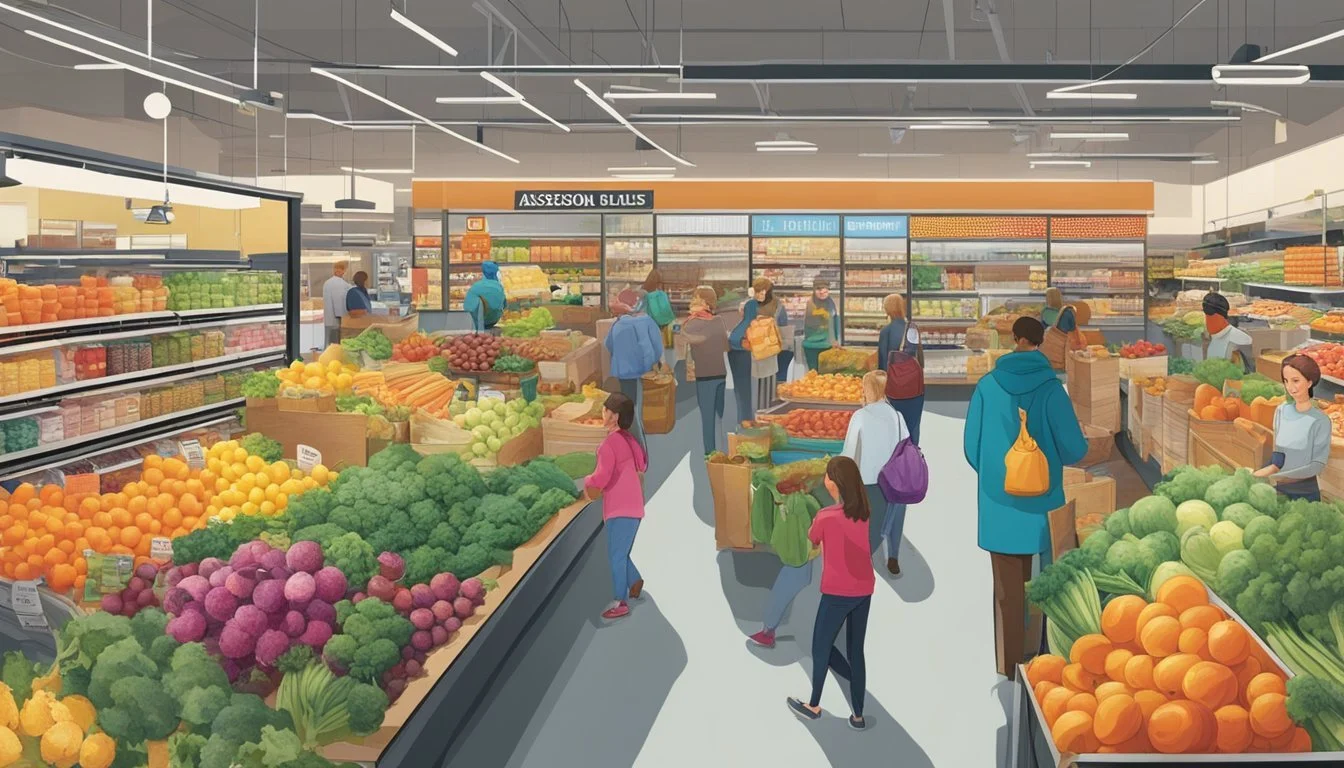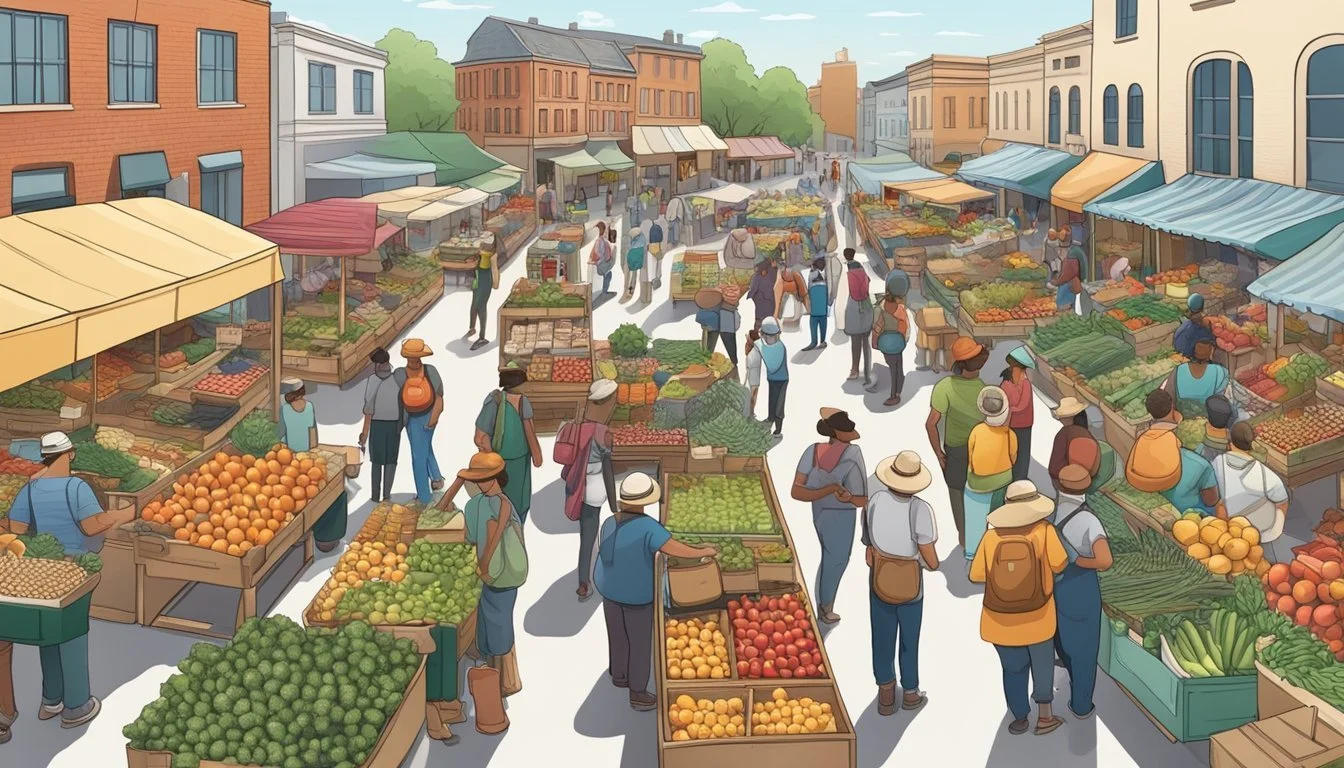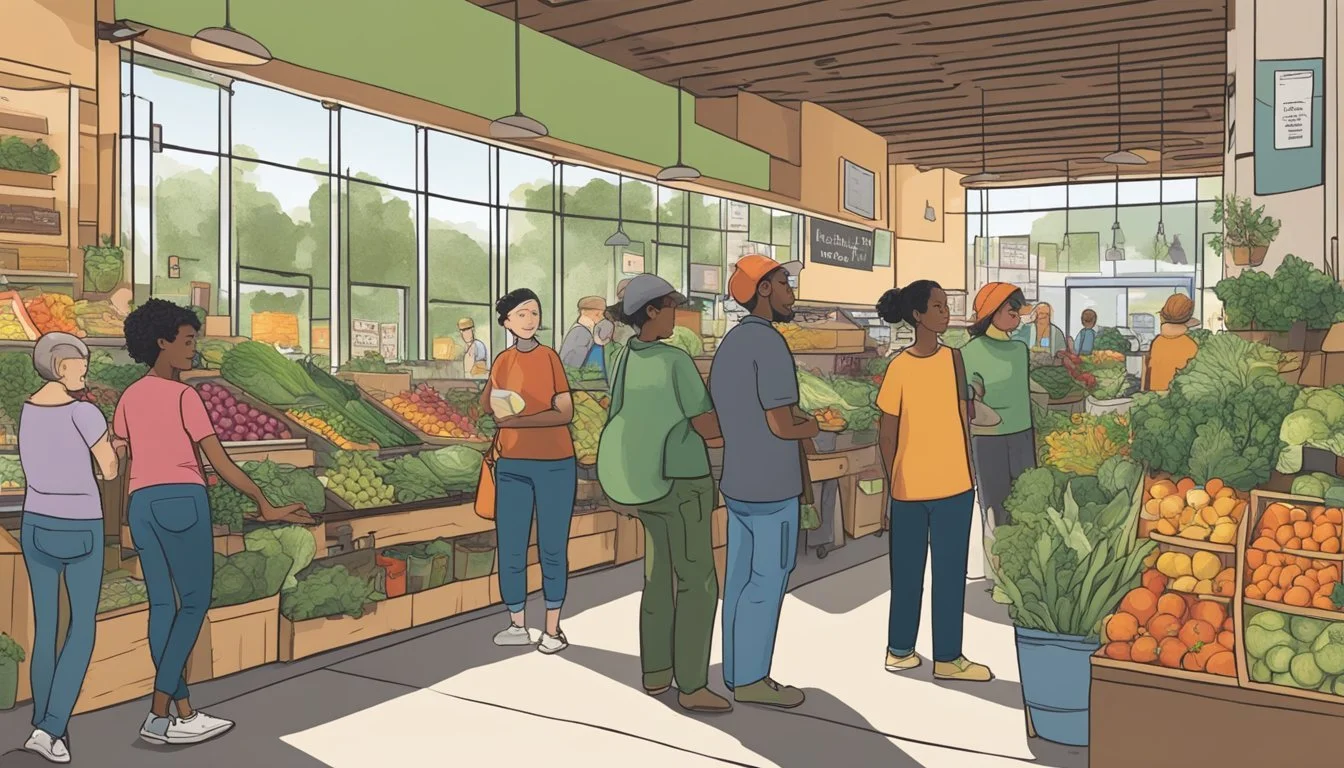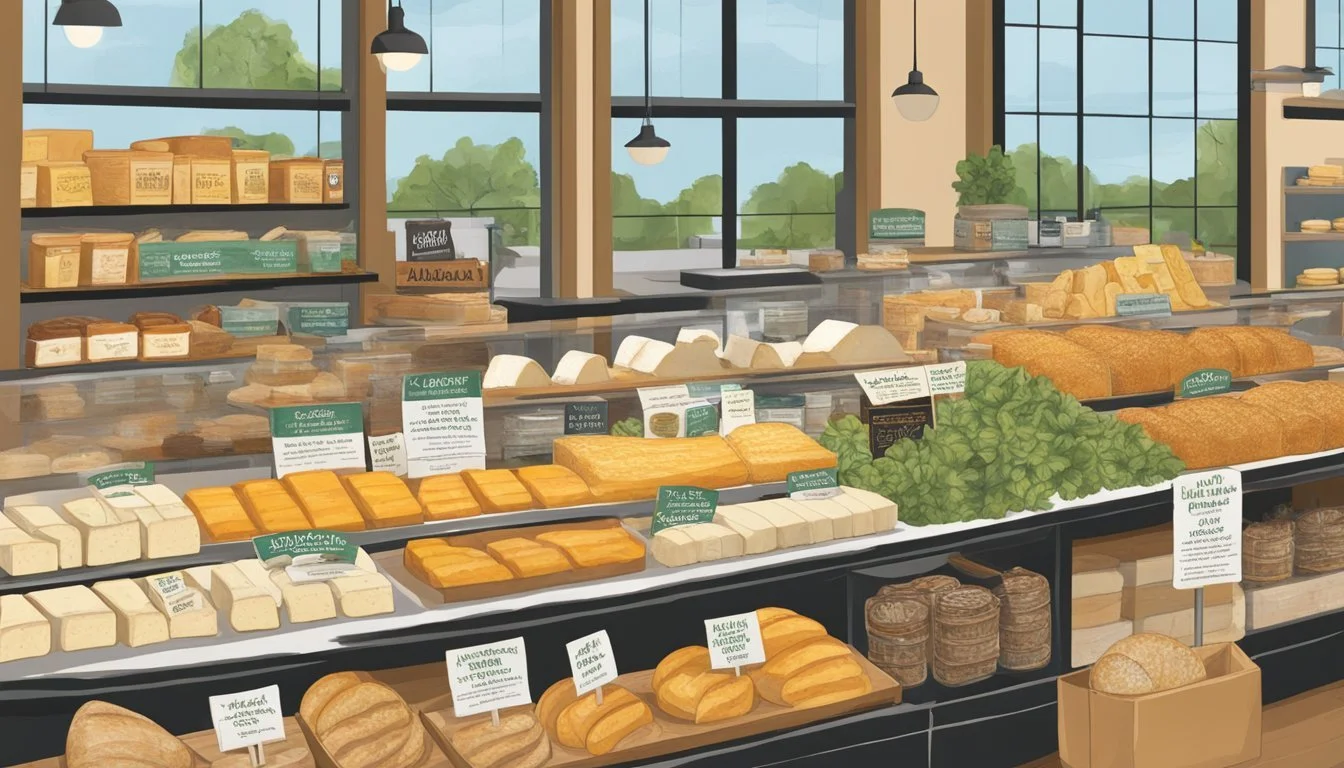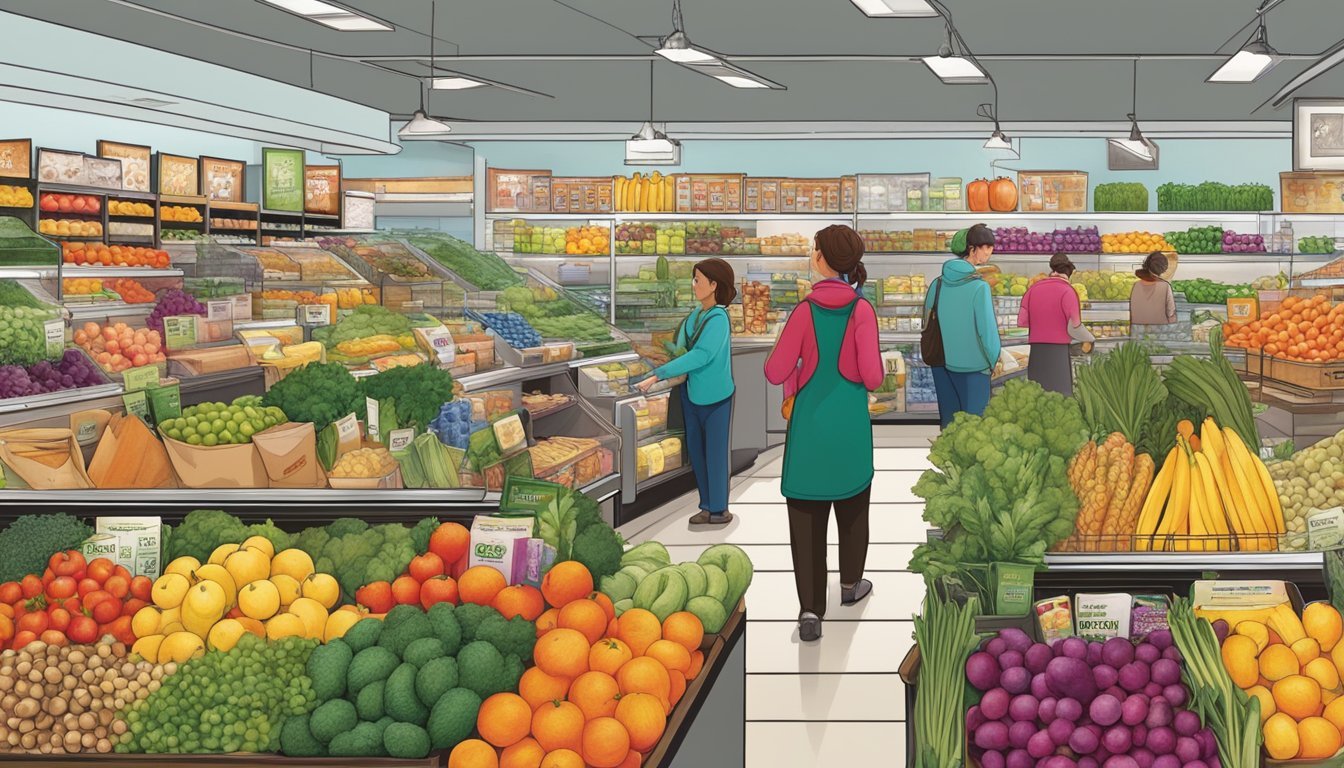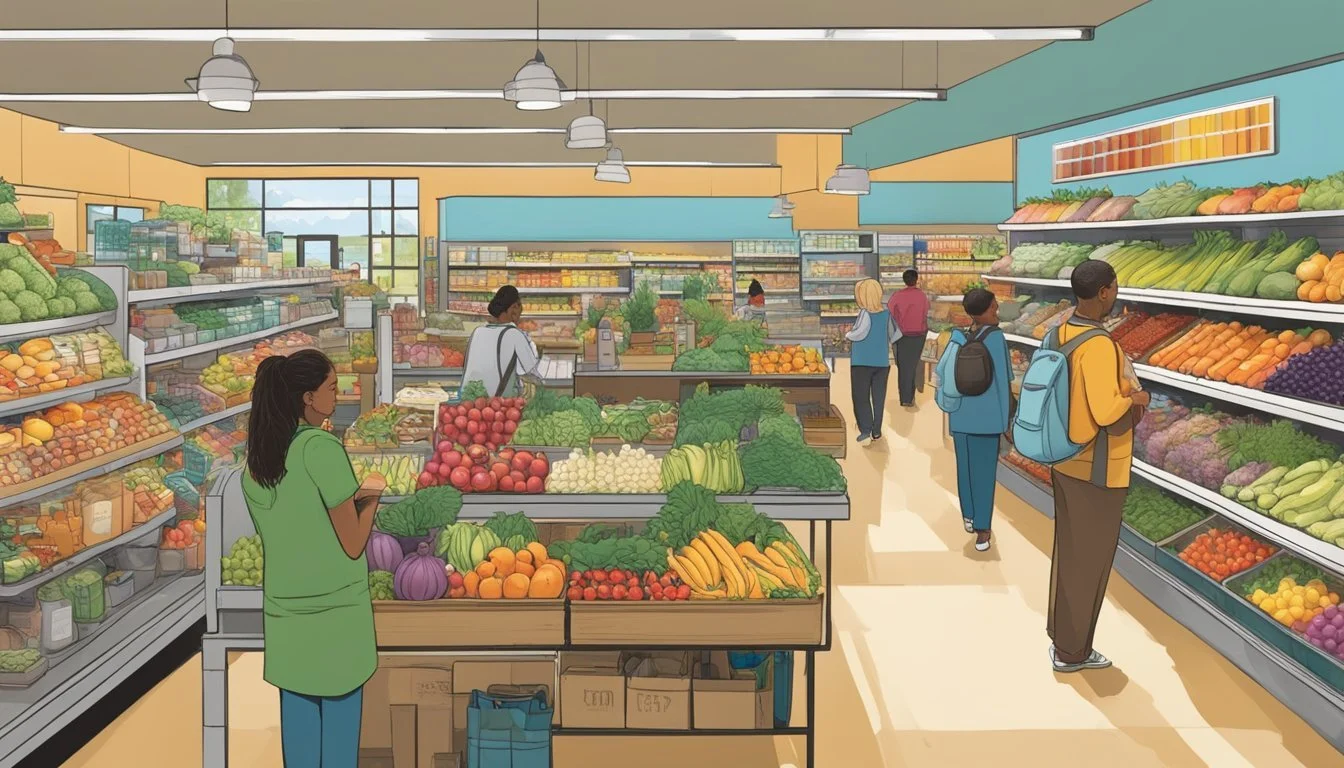Guide to Food Co-Ops in Madison, WI
Your Essential Shopping Resource
Food co-ops play a vital role in Madison, Wisconsin, offering residents an alternative to conventional grocery stores. These cooperative entities stand apart by operating under the principles of collective ownership and democratic governance. Madison's community places a strong emphasis on sustainable living, local agriculture, and equitable access to food, thereby making food co-ops a natural fit for the city's ethos. These co-ops are not only retail spaces but community hubs where individuals come together to make informed choices about their food sources and support the local economy.
Willy Street Co-op is a prominent example within Madison, known for its focus on local, organic, and special diet food options. With multiple locations in the area including a substantial facility at 2817 N Sherman Ave., they offer a full-service grocery experience enriched by a commitment to nourishing an accessible and sustainable food system. The cooperative's structure empowers its customers, staff, and suppliers, fostering a sense of community and shared purpose in pursuing healthier, responsible living.
By prioritizing locally sourced products, food co-ops like Willy Street support Wisconsin's farmers and artisans, which in turn bolsters the local economy. Educational initiatives such as cooking classes and the provision of extensive information about food origins and production methods further contribute to an informed consumer base. These co-ops are shaped by their members, ensuring that the services provided align with the community's needs and values, making Madison's food co-ops not just stores, but a testament to the community's investment in a cooperative model of business.
History of Food Co-Ops in Madison
Madison's food co-operatives have a storied past, evolving significantly from their humble beginnings to become key players in the city's food scene, promoting sustainable, accessible, and equitable food systems.
The Birth of Madison Food Co-Ops
Madison, Wisconsin's history with food cooperatives dates back several decades, during which these member-owned organizations were established to meet the community's need for accessible and high-quality food options. These co-ops were grounded in the principle of cooperation, emphasizing democratic ownership and control by their members. One of Madison's most enduring cooperatives, Willy Street Co-op, began serving the community with this cooperative spirit which has continued to flourish.
Expansion and Influence
Over the years, Madison's food co-ops have not just grown in number, but they've also expanded in influence, actively shaping the local food culture and economy. They have been instrumental in fostering direct relationships between consumers and producers, ensuring fair prices for both. The Food Co-op Initiative, established in 2010, has played a significant role in supporting new co-op development across the nation, illustrating the far-reaching impact of Madison’s cooperative movement beyond just local boundaries. These food cooperatives continue to empower communities through cooperative principles, significantly contributing to making healthy, locally sourced food available to more people.
Key Food Co-Ops in Madison
In Madison, WI, food co-operatives offer a range of local, organic, and sustainable food options. The Willy Street Co-op is a flagship example of this community-oriented business model, which focuses on accessible and equitable food systems.
Willy Street Co-op Overview
Willy Street Co-op is a prominent grocery cooperative located in Madison, WI. With roots extending back to 1974, it has grown into a local institution that prioritizes fresh, organic, and natural foods. Its locations include 2817 N Sherman Ave, with contact details at (608) 471-4422, and the more central one at 1221 Williamson Street. The Willy Street Co-op is committed to empowering the local community, customers, and suppliers through cooperative principles. It operates with a mission to nourish a sustainable, accessible, and equitable food system that is open to all.
Other Notable Co-Ops
Madison also hosts a diverse array of other grocery cooperatives that contribute to the vibrant local food scene. These co-ops foster close relationships with local producers and offer consumers fresh produce and goods that align with sustainable practices. While the specifics of each may vary, they share a common commitment to community engagement and cooperative principles. Examples of grocery co-ops include those recognized by the UW Center for Cooperatives and embodied in entities featured in resources like the Wisconsin Co-op Directory. These directories and resources are designed to support and guide the development of food co-ops in the area.
Benefits of Joining a Food Co-Op
Joining a food co-op in Madison, WI, enables individuals to support their local community while enjoying various members-only perks. These cooperatives are centered around providing organic and natural foods, enhancing the local economy, and fostering a tight-knit community through member involvement.
Supporting Local Economy
Joining a Madison food co-op bolsters the local economy in several tangible ways. Members invest directly in their community by:
Purchasing locally-sourced products, which keeps money within the region and supports regional farmers and artisans.
Creating local jobs, as co-ops typically hire from within the community and provide fair wages.
Moreover, food co-ops in Madison often prioritize the stock of organic and natural foods, which supports sustainable agricultural practices and reduces environmental impact from long-distance food transportation.
Member Perks and Involvement
Members of a food co-op enjoy a range of benefits that go beyond mere grocery shopping. These perks include:
Discounts on groceries and special orders, often including local, organic, and natural foods.
A voice in the management of the co-op, as members can attend meetings, vote on important decisions, and even stand for governance roles.
Members find that their involvement in co-op governance reinforces a sense of community and provides an avenue for advocating for the availability of organic and natural foods. They actively contribute to decisions that align with their personal values and the needs of the local area.
How Food Co-Ops Contribute to the Community
Food co-ops in Madison, WI, play a pivotal role in fostering local community growth and education through various initiatives and opportunities.
Community Engagement Initiatives
Food cooperatives in Madison focus on Community Engagement Initiatives to empower local residents and bring tangible benefits to the city. These initiatives often include:
Local Product Promotion: Cooperatives prioritize sourcing and promoting products from local producers, thus stimulating Madison's economy.
Inclusive Trade Programs: They strive to support products from businesses owned by women, people of color, LGBTQIA+ individuals, veterans, or people with disabilities, encouraging a diverse and inclusive marketplace.
Educational Opportunities
Educational Opportunities offered by food co-ops enhance community knowledge and engagement. They often organize:
Workshops: These are focused on sustainable food practices, health, and nutrition, guiding residents toward making informed lifestyle choices.
Cooking Classes: Practical, hands-on teaching of meal preparation that promotes local produce and healthy eating habits.
By implementing these strategies, Madison's food co-ops not only aim to be successful as businesses but also to be keystone institutions that support cooperative values, community well-being, and the feasibility of local food systems.
Navigating the Food Co-Op Landscape
Food co-ops in Madison present a variety of shopping and membership options, focusing on natural and locally sourced products. They offer community-oriented alternatives to traditional grocery retail establishments.
Deciding Where to Shop
When selecting a food co-op, consumers in Madison, WI, are greeted with several choices, each with a unique selection of organic, natural, and locally produced foods. The Willy Street Co-op is a standout example, operating multiple locations that serve not just members, but all customers. Individuals can consider factors such as product range, location, and community involvement when choosing a co-op.
How to Join a Co-Op
Joining a food co-op generally involves purchasing a share or making an equity investment, which signifies membership. At the Willy Street Co-op, for instance, this process is made accessible to all community members, and the benefits include discounts and a say in co-op affairs. New members can join by completing an application and fulfilling the membership fee or equity requirement, as detailed in the co-op's member guidelines.
Specialty Offerings at Madison Food Co-Ops
Madison's food cooperatives are renowned for their dedication to providing a range of specialty offerings that cater to both health-conscious consumers and those looking for local, fresh options. They emphasize organic selections and offer unique deli and hot food services that set them apart from typical grocery stores.
Local Produce and Organic Selections
Madison food co-ops stand out for their commitment to locally sourced and organic produce. Shoppers have access to a seasonal array of fresh fruits and vegetables that support local farmers and the community's economy. Organic options are prevalent, ensuring that customers can purchase food items that have been grown without synthetic pesticides or fertilizers. This not only backs sustainable agriculture but also offers choices for those who are mindful of the environment and personal health.
Seasonal Variety: Emphasis on local harvest cycles for peak freshness.
Organic Standards: Rigorous adherence to certified organic farming practices.
Deli and Hot Food Options
The deli sections of Madison's food co-ops are a showcase of culinary diversity and ready-to-eat meals. Patrons can find a vast selection of artisanal cheeses, locally-crafted breads, and an assortment of cold cuts and spreads. Hot food counters provide on-the-go meal options that are prepared daily, featuring both traditional dishes and international cuisine tailored to satisfy various dietary preferences.
Artisanal Deli: Locally-sourced dairy products and premium cold cuts.
Hot Food Service: Freshly made meals available for immediate consumption.
These co-ops not only serve as grocery providers but also as community hubs where individuals can explore and enjoy food made with care, quality, and a connection to the local land and its producers.
Sustainability and Environmental Impact
Food co-ops in Madison, Wisconsin, are focused on impacting the community positively by implementing eco-friendly practices and reducing food miles which emphasize supporting local, sustainable, and organic food systems.
Eco-friendly Practices
Cooperatives are known to support products that align with sustainable values. They often feature goods from companies that are at least 51% owned and operated by minorities, including women, people of color, LGBTQIA+ individuals, and people with disabilities.
Local Sourcing: Local products are prioritized to support community growers and reduce carbon footprints.
Organic Offerings: A significant portion of the items co-ops offer are organic, limiting the environmental impact from synthetic pesticides and fertilizers.
Sustainable Packaging: Efforts to minimize waste include opting for biodegradable or reusable packaging.
Reducing Food Miles
By focusing on locally produced foods, food co-ops help reduce the distance that food travels from farm to table, which in turn:
Conserves Energy: Less fuel is used in transportation, conserving energy and reducing greenhouse gas emissions.
Maintains Fresher Produce: Shorter transportation times mean fresher offerings for customers.
Products and Services
Madison's food co-ops offer an extensive range of products and services that cater to the community's needs for healthy, organic, and locally sourced items.
Unique Food Items
Madison's food co-ops are renowned for their selection of unique food items that emphasize local and organic produce. Shoppers can find a variety of fresh fruits and vegetables that may not be available in conventional grocery stores. The co-ops also provide locally sourced meat products, showcasing an array of grass-fed, free-range, and organic options. Alongside the meat section, a dedicated area for cheese highlights Wisconsin’s pride in dairy products, featuring artisan and small-batch cheeses from the region's esteemed cheesemakers.
For those interested in seafood, the co-ops offer sustainably-sourced options that often come with information about where and how the seafood was harvested. This ensures that consumers can make educated choices about the impact of their purchases on marine ecosystems.
Non-Food Items and Services
Beyond food, Madison co-ops also stock a variety of non-food items and services. These often include eco-friendly household products, health and wellness supplements, and body care items that align with the co-ops' commitments to sustainability and ethical sourcing.
Additionally, many co-ops offer services like community rooms, cooking classes, and educational workshops to engage with their members and the public. These services not only cater to the health of the body but also foster a strong sense of community by encouraging learning and collaboration in areas related to nutrition, sustainability, and local food systems.
Starting Your Own Food Co-Op
Starting a food co-op in Madison, Wisconsin involves careful planning and access to various resources that ensure an effective launch. From initial considerations to specific resource gathering, each step is crucial for a successful co-op formation.
Initial Considerations and Steps
One embarks on the journey of starting a food co-op by assessing the community's needs and the feasibility of the venture. This includes a clear understanding of the local market, potential membership, and the economic landscape. It is vital to build a strong foundation with the engagement of community members who share a common interest in creating a consumer-owned grocery alternative.
A thorough business plan must be devised, emphasizing strategic planning, governance structure, and financial projections. Attention should also be given to the legal aspects of co-op formation, for which a Legal Primer for the Formation of Consumer-Owned Food Cooperatives can serve as an indispensable guide. The legal primer helps in navigating the complexities around cooperative law, tax considerations, and incorporation.
A capital campaign is a pivotal step, considering the funding requirements of a food co-op. The Capital Campaign Workbook provides comprehensive strategies and best practices to campaign effectively and raise the necessary funds. These strategies can include member loan programs and equity systems to generate sufficient startup capital.
Resources for Aspiring Co-Ops
Numerous resources are available to assist with the different stages of creating a food co-op. The Food Co-op Initiative offers guides, toolkits, and case studies essential for navigating the startup process efficiently.
The Member Equity Toolbox: A detailed guide for retail food co-ops which outlines procedures for managing member equity.
USDA Research Report 208, "Keys to Success for Food Co-op Start Ups in Rural Areas": This report can provide invaluable insights into the factors that contribute to the success of new co-ops, especially pertinent to those in rural settings.
These resources combine best practices, experiential knowledge, and research-based strategies to support aspiring food co-ops. They help to clarify the processes involved in starting a co-op and how to overcome potential challenges.
Local support in Madison is readily available through the UW Center for Cooperatives, offering guidance on cooperative models, governance, and sustainable practices. They provide educational materials and workshops tailored to co-op startups.
By leveraging these resources, groups in Madison can navigate the challenges of starting a food co-op with greater ease and a higher likelihood of success.
Challenges Facing Food Co-Ops
Food cooperatives in Madison, WI, grapple with a distinctive set of difficulties that stem from both economic constraints and market dynamics. Their performance is further affected by the competitive landscape and the necessity for growth.
Economic and Market Challenges
Food co-ops often operate on thin margins due to the inherent economic challenges of the sector. They are tasked with delivering value to their members while being financially sustainable. The need to provide affordable options to members can be particularly challenging in rural areas, where logistical costs may be higher. This spaces significant pressure on the co-ops to maintain a balance between pricing, member benefits, and operational costs.
Key Economic and Market Challenges:
Maintaining financial sustainability with thin profit margins.
Balancing member value with affordable pricing.
Addressing higher logistical costs in rural areas.
Competition and Growth
The competition in Madison's retail grocery sector comes from both traditional supermarkets and new market entrants, often with larger economies of scale. Retail grocery cooperatives must innovate and grow to remain competitive. Growth is essential not only for sustainability but also to expand their positive impact on the community. However, this growth must be achieved without compromising the co-op's values and commitment to serving its members and the wider society.
Strategies for Overcoming Competitive Challenges:
Innovative practices to differentiate from traditional markets.
Sustainable growth that aligns with core cooperative principles.
Future of Food Co-Ops in Madison
The landscape of food cooperatives in Madison is poised to evolve, reflecting both consumer interest trends and partnerships with local organizations. These cooperatives not only provide affordable food options but also serve as an intersection of community engagement and sustainable living.
Trends and Evolving Consumer Interests
Consumer interests in Madison are steadily shifting towards locally-sourced, sustainable, and organic products. As these demands increase, food co-ops in the area are expected to expand their offerings to accommodate. Willy Street Co-op is a prime example of a food cooperative that continues to align its mission with these interests, playing a pivotal role in developing a sustainable and equitable food system for all residents.
Emphasis on local art and culture within these spaces is also on the rise. The University of Wisconsin-Madison (UW-Madison) and its affiliates are likely to foster closer ties with food co-ops, integrating educational initiatives and showcasing local artists’ work, thus enriching the cultural fabric of the cooperative ecosystem.
Collaboration with Local Organizations
Partnerships are vital for the growth and sustainability of food co-ops. As the cost of living in Madison climbs, food co-ops remain a bastion of affordability in the face of a market where average rental prices eclipse those within cooperative housing. Madison Area Cooperative Housing Alliance has provided data showcasing the stark contrasts in living costs, emphasizing the affordability of co-op arrangements.
UW-Madison’s Center for Cooperatives is another key player, supplying resources and guidance to foster the development of food co-ops. This collaborative relationship is anticipated to strengthen, leading to robust data on governance practices and more informed strategies for future initiatives. Integration with housing cooperatives will also be paramount to ensure that the food co-op model remains an accessible option across socioeconomic strata within the community.
Conclusion
Madison, WI is a hub for community-oriented food retail known as food cooperatives or food co-ops. These organizations are pivotal in fostering a sustainable food system that benefits both local producers and consumers. Food co-ops operate with a strong emphasis on community values, offering a platform for members to invest in and have a say in the business.
Willy Street Co-op stands out as a notable example, with a mission to cultivate community engagement and provide equitable access to organic food sources. With its multiple locations within Madison and a dedicated customer base, the cooperative excels in connecting people with local, organic food options.
Moreover, the UW Center for Cooperatives at UW-Madison serves as an educational resource, publishing guides on establishing and running food co-ops. Their contributions, including comprehensive toolboxes and workbooks, support the successful implementation and growth of such ventures.
Edible Madison, through its mission-driven magazine, amplifies the importance of eating locally for the betterment of the economy, environment, and health. By honoring regional food leaders, they keep the spotlight on the positive community impact of a thriving local food ecosystem.
In conclusion, food co-ops in Madison encapsulate a model that is both economically viable and socially responsible. By centering their operations around cooperative principles, these entities play an influential role in shaping a more resilient food system for southern Wisconsin.

